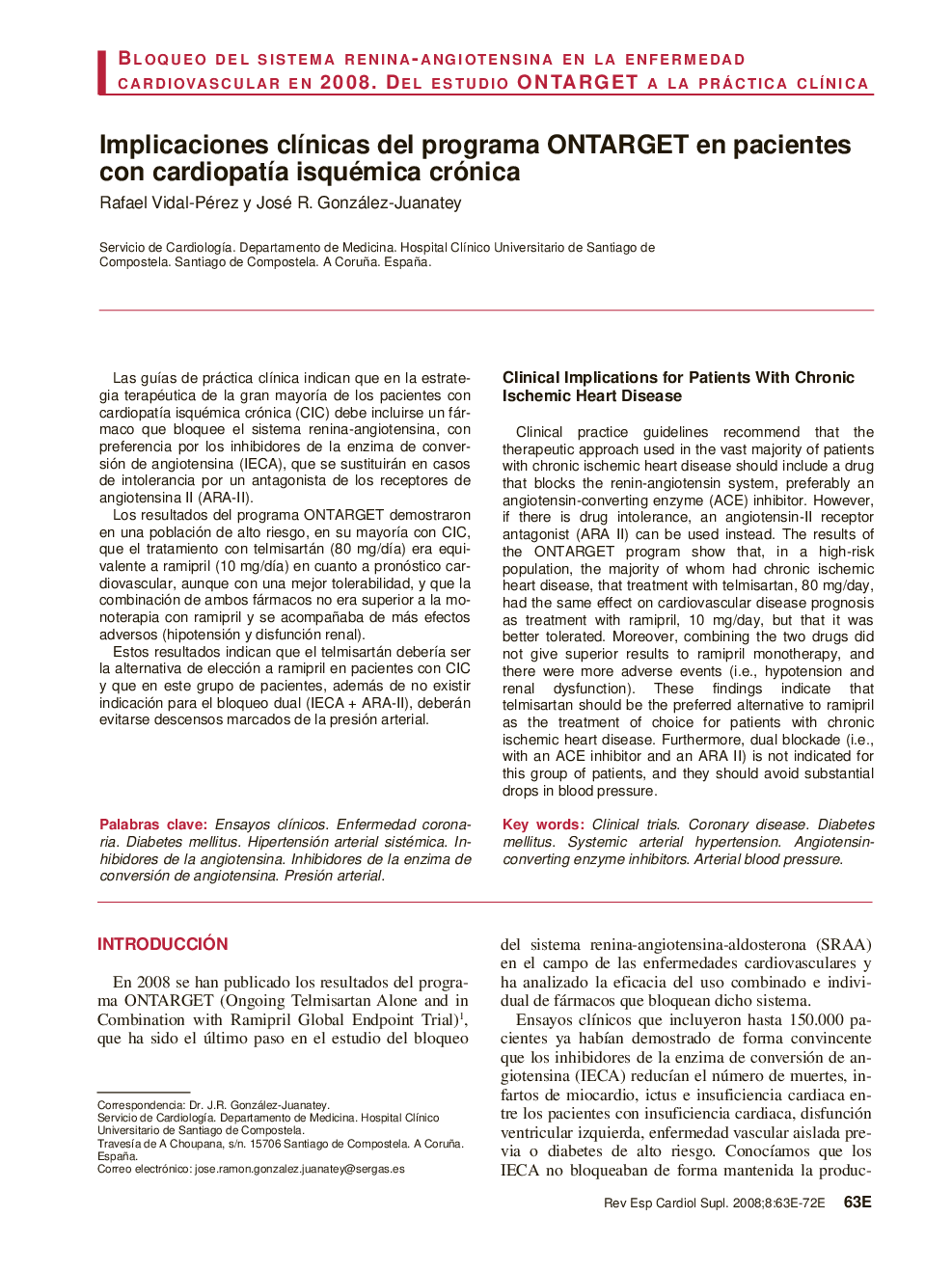| Article ID | Journal | Published Year | Pages | File Type |
|---|---|---|---|---|
| 3019657 | Revista Española de Cardiología Suplementos | 2008 | 10 Pages |
Abstract
Clinical practice guidelines recommend that the therapeutic approach used in the vast majority of patients with chronic ischemic heart disease should include a drug that blocks the renin-angiotensin system, preferably an angiotensin-converting enzyme (ACE) inhibitor. However, if there is drug intolerance, an angiotensin-II receptor antagonist (ARA II) can be used instead. The results of the ONTARGET program show that, in a high-risk population, the majority of whom had chronic ischemic heart disease, that treatment with telmisartan, 80 mg/day, had the same effect on cardiovascular disease prognosis as treatment with ramipril, 10 mg/day, but that it was better tolerated. Moreover, combining the two drugs did not give superior results to ramipril monotherapy, and there were more adverse events (i.e., hypotension and renal dysfunction). These findings indicate that telmisartan should be the preferred alternative to ramipril as the treatment of choice for patients with chronic ischemic heart disease. Furthermore, dual blockade (i.e., with an ACE inhibitor and an ARA II) is not indicated for this group of patients, and they should avoid substantial drops in blood pressure.
Related Topics
Health Sciences
Medicine and Dentistry
Cardiology and Cardiovascular Medicine
Authors
Rafael Vidal-Pérez, José R. González-Juanatey,
